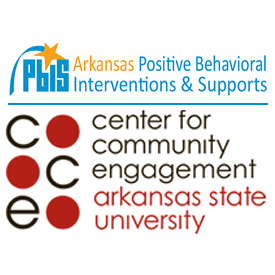The RTI Academic Training Modules were developed to support districts and schools in Arkansas that are interested in implementing a multi-tiered system of support to address individual student needs through tiers of increasingly intensive instructional interventions. The training series consists of fourteen modules and incorporates special topics on leadership, initiative alignment, and family engagement. Those new to RTI should begin with Module 1: Response to Intervention Overview.
What materials are included with each training module?
- PowerPoint presentation: ready-made presentations, complete with trainer notes; can be used as-is with the flexibility of adding local context
- Participant workbook: includes module activities to increase learner engagement; provides a space for notes, discussion questions, and key takeaway information
Module 1: Response to Intervention Overview
In this training module, participants are provided with an overview of the essential elements of RTI and the four-step problem solving method used for data-based decision making.
Module 2: RTI Leadership and Infrastructure
This module guides attendees through the process of developing a district- and school-level leadership team and provides support in developing an action plan to address priority areas.
Module 3: Universal Screening Overview
The Universal Screening Overview module provides an explanation of the essential criteria for implementing an effective screening process in an RTI framework.
Module 4: Selecting Universal Screeners
In this module, attendees are guided through the process of identifying and selecting an RTI screening tool and data system.
Module 5: Establishing a Universal Screening Process
This training module provides information on developing an implementation plan for universal screening and using the screening data for decision making at different tiers of instruction.
Module 6: Tier I Core Instruction
The Tier I Core Instruction module identifies and explains the critical features needed to provide high-quality Tier I instruction.
Module 7: Differentiated Instruction in Tier I
In this training, implementers learn the importance of differentiating instruction and how to use data to meet the needs of all students.
Module 8: Data-Based Decision Making
This module engages teams in the problem-solving process and guides them through the development of an RTI action plan used to improve student outcomes on specific measures.
Module 9: Tier II Supplemental Intervention
The Tier II Supplemental Intervention module guides participants through planning and implementing Tier II interventions with fidelity.
Module 10: Tier III Intensive Intervention
This training highlights the critical features of an MTSS Tier III system and supports attendees in using the five steps for designing and implementing intensive interventions.
Module 11: Overview of Secondary Response to Intervention Implementation
The Overview of Secondary RTI Implementation module highlights the benefits of RTI implementation, explains the essential components, and provides implementation support within a secondary setting.
Module 12: Early Warning Systems in Secondary Settings
This training module explains early warning indicators and guides teams through using data to identify focus areas within a tiered system of support.
Module 13: Evidence-Based Practices Across the Tiers in Secondary Settings
In this module, participants are guided through the implementation of evidence-based practices and high-leverage practices across the tiers of prevention within a multi-tiered system of support.
Module 14: Response to Intervention for Parents and Families
This training module assists in developing a common understanding of Response to Intervention and the importance of collaboration among families, communities, and educators.










